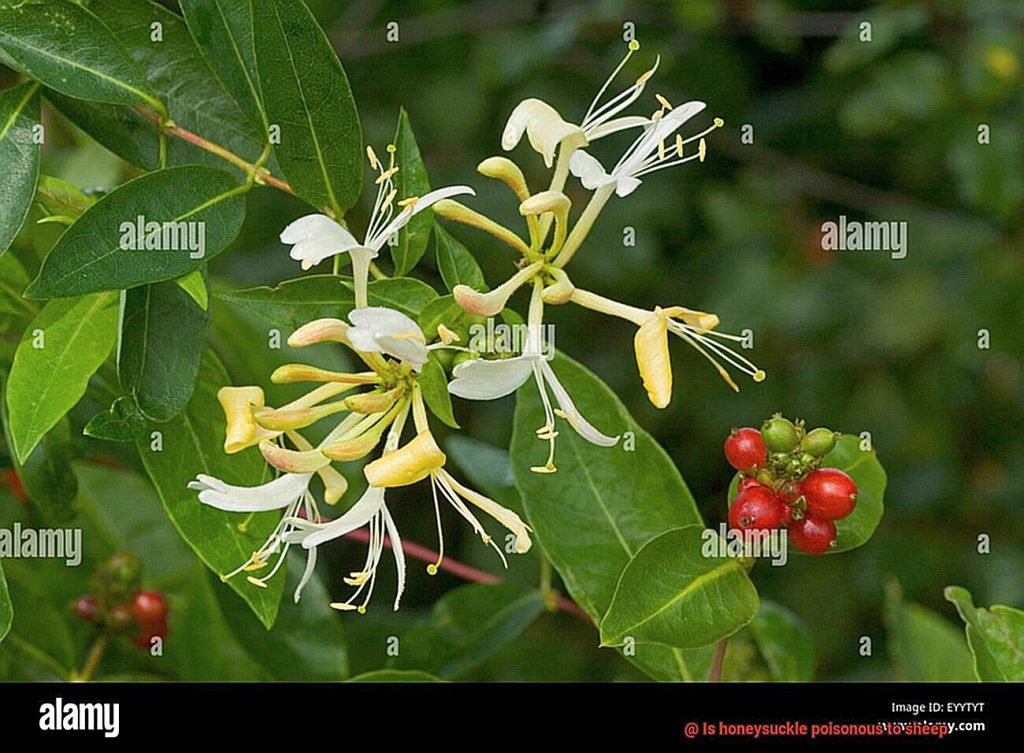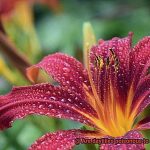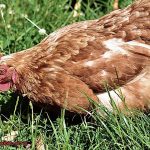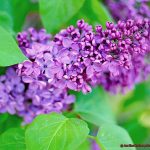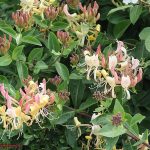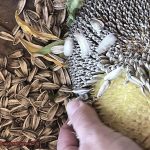As a sheep farmer, you know that the health and wellbeing of your flock is paramount. You’ve spent countless hours researching the best feeds, supplements, and grazing options to ensure optimal nutrition. But what about those pesky plants that seem to pop up everywhere? One such plant is honeysuckle, with its alluring fragrance and delicate blooms. However, before you let your sheep chomp down on this seemingly innocent shrub, it’s essential to ask: is honeysuckle poisonous to sheep?
In this blog post, we’ll delve into the nitty-gritty of honeysuckle toxicity in sheep. We’ll explore the different types of honeysuckle plants and their potential risks, including the toxic compounds found in certain varieties. Furthermore, we’ll examine the symptoms that may indicate poisoning in your flock and provide tips for preventing honeysuckle poisoning altogether.
Whether you’re a seasoned shepherd or new to the world of sheep farming, understanding the dangers posed by honeysuckle can help safeguard your flock’s health.
So, let’s dive in.
What is Honeysuckle?
Contents
Honeysuckle is a captivating plant that enchants us with its sweet fragrance and charming appearance. This delightful plant belongs to the Caprifoliaceae family and is native to the Northern Hemisphere, thriving in Asia, Europe, and North America. With over 180 species to choose from, honeysuckle comes in an array of appearances and scents that appeal to our senses.
This versatile plant can either grow as a shrub or a vine, depending on its species. Its leaves are usually opposite and simple, with oval or lanceolate shapes. The flowers are tubular and come in an assortment of colors, such as white, yellow, pink, red, and orange. Some honeysuckle species even produce berries that are enjoyed by birds and other wildlife.
Apart from being a garden favorite, honeysuckle has been used for medicinal purposes for centuries. It contains several compounds that have anti-inflammatory, anti-bacterial, and anti-viral properties. This plant has been used to treat respiratory infections, skin conditions, and digestive issues.
While honeysuckle is generally safe for consumption by sheep in moderation, it’s important to note that some species may contain toxic compounds that can be harmful to livestock such as horses or cattle. For instance, Japanese honeysuckle (Lonicera japonica) contains saponins that are toxic to some animals. Therefore, it’s crucial to identify the specific species of honeysuckle in your garden and ensure that it does not make up a significant portion of their diet.
Is Honeysuckle Poisonous to Sheep?
If so, you may be wondering if honeysuckle is safe for your woolly friends to consume. Well, I have good news for you. Honeysuckle is not poisonous to sheep and is generally considered safe for them to eat.
However, it’s essential to keep in mind that consuming large amounts of honeysuckle can lead to digestive issues or even blockage in the digestive tract. Therefore, it’s crucial to monitor their consumption and make sure they don’t go overboard.
It’s also important to note that while honeysuckle itself is not toxic to sheep, there are other plants that may look like honeysuckle but are dangerous to livestock. These include Japanese honeysuckle and trumpet honeysuckle, which can cause severe gastrointestinal problems, convulsions, and even death in some cases.
Different Types of Honeysuckle and Their Toxicity Levels
Honeysuckle is a stunning flowering plant that has been prized for its medicinal properties for centuries. However, not all honeysuckle species are created equal when it comes to toxicity levels, particularly for sheep. As an expert on this topic, let me help you understand the different types of honeysuckle and their effects on sheep.
Let’s first discuss the two most common types of honeysuckle that pose a threat to sheep: Japanese honeysuckle and Tatarian honeysuckle. These species contain saponins, which can be harmful to sheep in large amounts. Saponins can cause severe symptoms like diarrhea, vomiting, and colic, which can even be life-threatening in some cases.
In contrast, native honeysuckle species found in North America, such as trumpet honeysuckle and coral honeysuckle, are non-toxic to sheep. These species are actually quite beneficial for livestock due to their high nutritional value and are often used as forage.
It’s important to note that there are over 180 different species of honeysuckle, so it’s crucial for sheep owners to identify the various types on their property and comprehend their toxicity levels. If you’re uncertain about whether a particular species of honeysuckle is safe for your sheep to consume, it’s best to consult with a veterinarian or agricultural specialist.
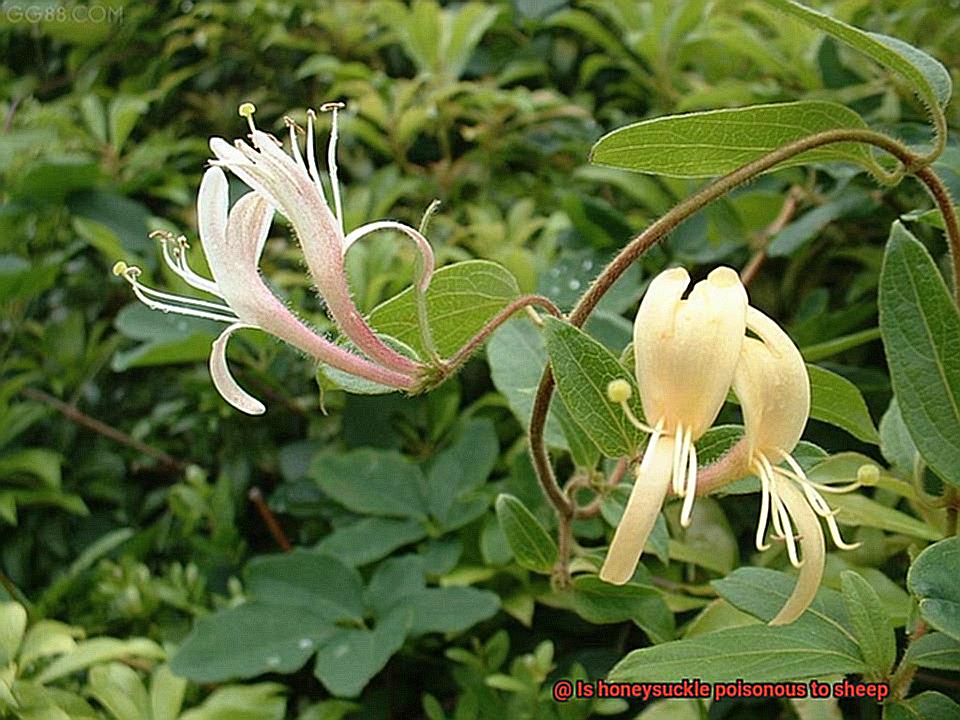
Potential Side Effects of Overconsumption of Honeysuckle
While it may be a delicious treat for them, eating too much can lead to serious health issues. In this post, we will explore the potential side effects of overconsumption of honeysuckle and share tips on how to keep your sheep healthy.
The most common side effect of overconsumption of honeysuckle is gastrointestinal problems. This means that your sheep may experience diarrhea or vomiting after consuming too much honeysuckle. Although these symptoms usually pass within a few hours or days, they can be uncomfortable for your sheep. However, if your sheep has consumed an excessive amount of honeysuckle, they may experience more severe health problems.
This is because honeysuckle contains saponins, which are toxic compounds that can cause damage to red blood cells. In sheep, this can lead to anemia and other health problems. Your sheep may show symptoms such as lethargy, pale gums, and difficulty breathing. If you notice any of these symptoms in your sheep, it’s crucial to seek veterinary care immediately.
It’s essential to note that the amount of honeysuckle needed to cause these side effects may vary depending on the individual sheep and the species of honeysuckle. However, it’s generally recommended to limit consumption of honeysuckle and monitor your sheep for any signs of adverse effects.
If you suspect that your sheep have consumed too much honeysuckle or are experiencing any negative symptoms, it’s crucial to seek veterinary care immediately. Treatment may involve supportive care such as fluid therapy and monitoring for anemia. In severe cases, blood transfusions may be necessary.
How to Identify the Species of Honeysuckle in Your Garden
Honeysuckle plants are truly a sight to behold, with their delicate flowers and sweet fragrance. However, did you know that some species of honeysuckle can be toxic to sheep? That’s why it’s important to know how to identify the different types of honeysuckle in your garden. In this blog post, we’ll explore five subtopics to help you identify honeysuckle species and keep your sheep safe.
Differentiating Native and Non-Native Species
It’s crucial to note that there are both native and non-native species of honeysuckle, each with distinct characteristics. Native species usually have white or yellow tubular-shaped flowers and oval-shaped leaves that grow in pairs opposite each other on the stem. On the other hand, non-native species often have pink or red flowers and elongated or lobed leaves. By knowing these differences, you can easily differentiate between the species growing in your garden.
Examining Flower Characteristics
If you’re wondering how to identify honeysuckle species, examining the flowers is an excellent place to start. Different species have different flower shapes, colors, and fragrances. For instance, Japanese honeysuckle has yellow or white flowers that emit a sweet fragrance, while Tartarian honeysuckle has unscented pink or red flowers.
Observing Leaf Characteristics
Another way to distinguish between different types of honeysuckle is by observing their leaves. Some species have large oval-shaped leaves with a smooth texture, while others have elongated leaves with a slightly rough texture. By carefully observing these characteristics, you can better identify the species growing in your garden.
Checking for Invasiveness
It’s essential to recognize that some species of honeysuckle can be invasive and quickly spread throughout your garden, impacting other plants’ growth and disrupting the ecosystem. If you suspect that you have an invasive species growing in your garden, it’s crucial to take action to prevent its spread. You may want to consider contacting your local extension office or a professional landscaper for advice on how to remove invasive species safely.
Consulting with Experts
If you’re still unsure about how to identify the species of honeysuckle in your garden, don’t hesitate to consult with experts. They can provide you with valuable insights and guidance on how to identify different types of honeysuckle and take appropriate action to manage them in your garden.
Proper Nutrition for Sheep Grazing in a Garden with Honeysuckle
It’s time to talk about proper nutrition for your woolly friends. While honeysuckle is not necessarily poisonous to sheep, it’s important to understand the potential risks and benefits of allowing them to consume this plant.
Honeysuckle contains natural anti-inflammatory and antioxidant properties that can benefit sheep in small amounts. But excessive consumption can cause digestive issues like diarrhea and bloating. Plus, the leaves and stems contain higher levels of toxic compounds compared to the flowers, so limiting access to these parts is recommended.
To ensure your sheep’s health and well-being, a balanced diet is crucial. This includes a variety of grasses, legumes, and other forage options to provide all necessary nutrients and vitamins. However, honeysuckle has been shown to reduce absorption of minerals like copper and selenium in sheep. To counteract this, consult with a veterinarian or animal nutritionist on appropriate levels of supplementation.
l_kuiKWJPlU” >
Conclusion
In conclusion, as a sheep farmer, it’s crucial to be mindful of the potential risks and benefits of honeysuckle for your flock. While honeysuckle is generally safe for sheep to consume in moderation, some species may contain toxic compounds that can be harmful to livestock. Therefore, it’s vital to identify the specific type of honeysuckle in your garden and ensure that it doesn’t make up a significant portion of their diet.
Don’t let those sweet-smelling vines fool you – Japanese honeysuckle and Tatarian honeysuckle are two common types that pose a real threat to sheep due to their saponin content. These pesky plants can cause severe gastrointestinal problems if ingested in large quantities. However, native honeysuckle species found in North America are non-toxic and even beneficial for livestock due to their high nutritional value.
It’s worth noting that consuming excessive amounts of honeysuckle can lead to digestive issues or even blockage in the digestive tract. So keep an eye on your flock’s consumption and make sure they don’t overindulge.
To ensure proper nutrition for your sheep grazing in a garden with honeysuckle, we recommend providing a balanced diet that includes various grasses, legumes, and other forage options. Additionally, consulting with a veterinarian or animal nutritionist on appropriate levels of supplementation can help counteract any potential mineral absorption issues caused by honeysuckle consumption.
By understanding the dangers posed by honeysuckle and taking appropriate measures to prevent poisoning, you can safeguard your flock’s health and wellbeing.

